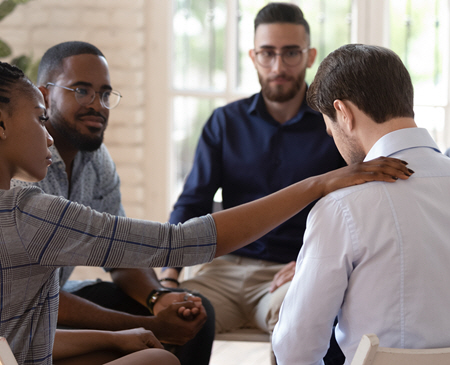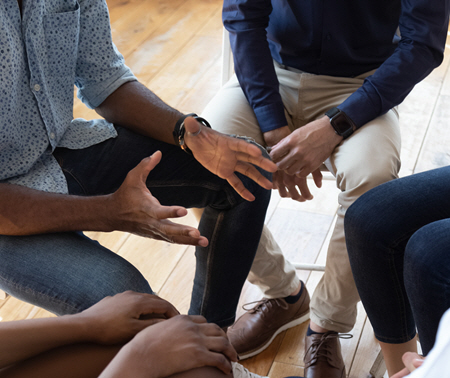 What is group counseling?
What is group counseling?
Group counseling is a very positive experience for most people because the therapist and group members build a safe place to explore the problems surrounding their relationships.
Through the sharing process, members develop a level of trust that allows them to be honest, open with one another, and accept each other despite any faults.
Group counseling usually is effective because members behave in ways that reflect how they are outside of the group. Other members can support the individual by changing those unproductive patterns through feedback.
There are several types of group counseling sessions.
Psychoeducational – Expands awareness about the behavioral, physical, and psychological consequences of mental health problems, relationship problems, and substance use.
Skills Development – Cultivates the skills people need to achieve and maintain positive mental health (avoiding triggers, managing anger, and solving problems).
Cognitive-Behavioral – Conceptualizes dependency as a learned behavior that clients can change through new thinking patterns, perceptions, and beliefs.
Support – Helps members manage their emotions and thoughts while building communications skills.
Interpersonal Process – Delves into major developmental issues, looking to resolve patterns that contribute to mental health issues or complicate one’s attempts to recover.
Here’s what to expect from group counseling.
I meet with you to conduct a pre-group evaluation and gather information about the problems you are experiencing.
If we both agree that you would benefit from group counseling, you will receive the meeting’s location, date, and time.
Usually, the group sits in a circle with between 4 and 12 members who all have similar problems (relationship issues; infidelity; need to rebuild trust; low sex drive; anger; codependency; men’s divorce issues; women’s divorce issues).
Ground rules regarding acceptable behavior are necessary. These rules include the need for confidentiality, acceptable behavior within the group, the need for all members to take part actively, the right not to answer specific questions, willingness to relate to others honestly about feelings, and committing to coming weekly for a set number of weeks.
 Group counseling elicits a host of feelings.
Group counseling elicits a host of feelings.
It is normal initially to be nervous and anxious when coming to group therapy because you will discuss deeply personal issues. The anxiety occurs as this is a new group of people you have never met except for the counselor/therapist.
There will be fear that the people in the group will judge you as strangers; remember, the people in your group are there because they have the same problems.
You may get angry or feel hurt when people directly confront how you deal with problems in your life. The rest of the group members are dealing with similar issues, and you are not alone.
As trust develops within the group, you will come to enjoy these meetings, as you feel the support and trust and how each person will help and support each other.
It is not unusual to feel worried or concerned when a group member does not come to a group counseling session. It is essential to discuss how that person’s absence affects group dynamics and worries.
Group counseling is life-changing.
Through the use of group counseling, you will rely on each other’s experience and share how each person is managing their issues and how they have a unique experience to help you work on your problems in real-time.
Knowing others share the same problems helps you overcome what you are feeling.
Join a group! Contact me today at (210) 756-6694.

